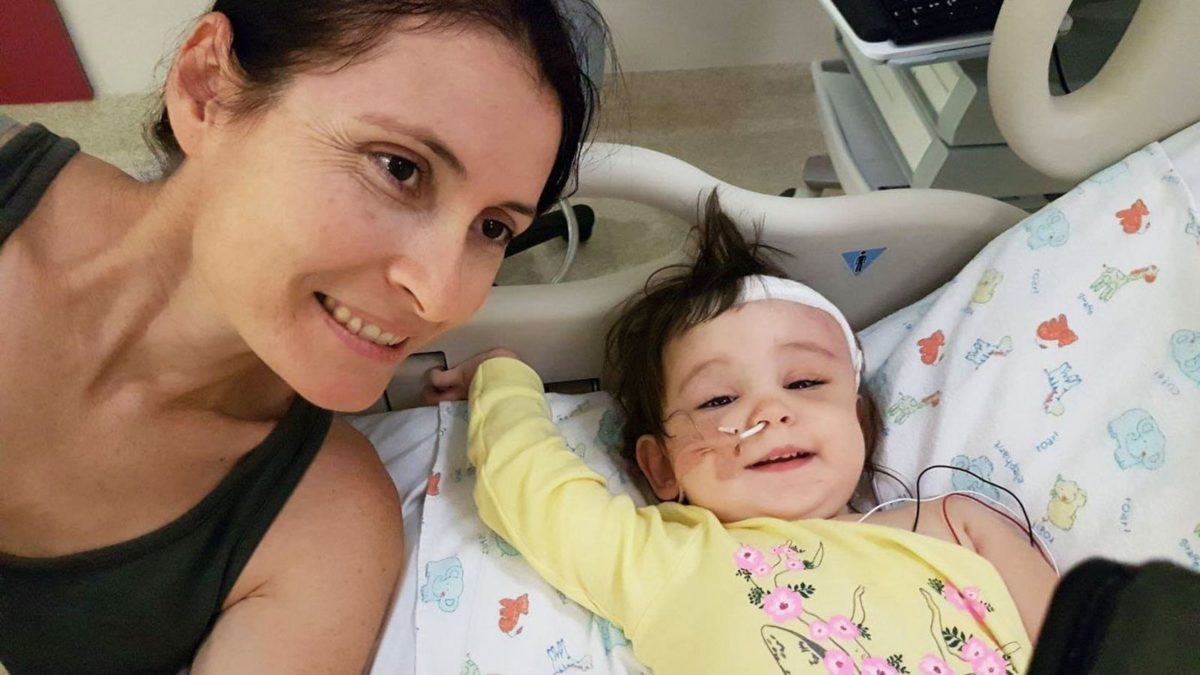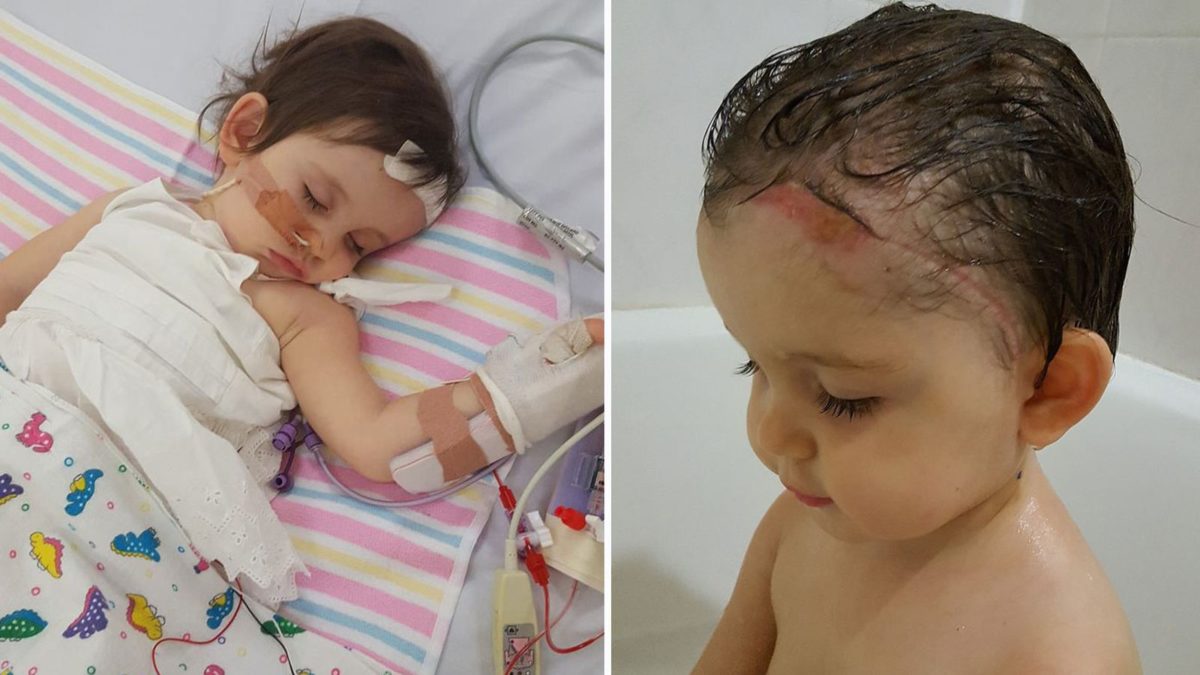-
1300 272 462
Ebony
When a fall from a lounge chair uncovered a mark on her young daughter’s brain, Maree Newman was told by doctors not to worry. The Queensland mum’s daughter, Ebony, was around 18 months old when she fell from a chair onto the carpeted floor at her grandparent’s house in November last year. Despite the innocuous nature of the accident, Ebony was unresponsive for 25 minutes.
After being rushed by ambulance to their local Mackay Base Hospital, Maree and her husband Michael were told MRI scans had found what doctors described as a marking on Ebony’s brain. They were told not to be too alarmed by the results of the scan, with the marking likely to be the result of a previous tumble and that it was probably “a calcium deposit on the brain”.
The Newman’s took their daughter home from hospital and were told to come back in a week for another scan. A short time after the second scan, Maree received a phone call to say that her “healthy happy little girl” had a rare tumour in her brain – “You’re just lost for words. Especially when she was showing no symptoms.”
It was a Saturday when they received the news of Ebony’s scan. By Monday, Ebony and her parents were back at Mackay Base Hospital to meet with a team of doctors, nurses and councillors. During the meeting, the Newmans were told Ebony’s tumour was a Craniopharyngioma – a benign and slow growing mass. A craniopharyngioma tumour develops near the brain’s pituitary gland which releases hormones that control many of the body’s functions. It can affect a person’s vision and cause fatigue, increase urination and headaches.
While news of the benign mass offered slight relief to the Newmans, a follow-up scan in February this year revealed the tumour had grown by nearly 50%. “I asked the specialist if it was aggressive? and she said, ‘yes it was’,” Mrs Newman said. “I went into a state of shock after that, it was just one shock after another.”
The growing tumour was stretching Ebony’s optic nerve. Her parents were told she needed surgery to save her eyesight. Ebony was transferred to Lady Cilento Children’s Hospital in Brisbane – nearly 1000km away from the Newman’s family home.

“It’s been very difficult to go down to Brisbane and my son stays back in Mackay for schooling. I’ve also got three step children as well. Just having your whole family split up is very difficult,” Mrs Newman said. “It’s just been an absolute emotional roller-coaster ride.”
Following the surgery in early March this year, Ebony spent nine days in the hospital’s ICU. Despite the tumour being removed, the mass and surgery caused the toddler to develop Diabetes Insipidus – a condition which presents as extreme thirst and excessive urination. She’s now on twice-a-day medication to treat symptoms. As well as treating a toddler twice a day with medication and dealing with excessive nappy changes, Ebony ended up back in hospital this month seven weeks post operation with a weepy surgical wound.
“I don’t think there’s much awareness in Australia for these types of brain tumours,” Maree said, adding that there is a misconception that once someone has surgery “they are fine”. “Because these types of tumours are right in the middle of the brain they are constantly filling up with fluid and they have a very high chance of regrowth. It’s the constant monitoring.” Ebony’s parents have been told there’s a chance she will need radiation therapy when she’s older.
Maree admits her work, as well as family, friends and the Brainchild Foundation, have helped with the ongoing stress. The Brainchild Foundation is paying for the family to go to a Brainchild Family Camp next month on the Sunshine Coast.
“I’m a mindful coach thank goodness, so I just take every day as it comes,” she said. “We’re a two-income family so when I had to go down to Brisbane that’s no income for a month. The financial aspect of it is very stressful as well as the constant worry about Ebony’s health. I’ve had my bad days where I feel like I’m having a breakdown, but then it’s Ebony and my son Liam that get me through the day and makes me pull myself together. Ebony gets me through. She’s such a brave, resilient little girl.”

Nine Digital Pty Ltd 2019
Related Posts
While many children may be cured of their tumours, neurological deficits affect them detrimentally and impact their families in subsequent…
Our funding, this year, has been directed at a research project at the University of Queensland looking at “Integrating innovative…
Jimmy’s 22 Million Steps for Kids Brain Cancer will be held again during May 2020, and we invite your school…
